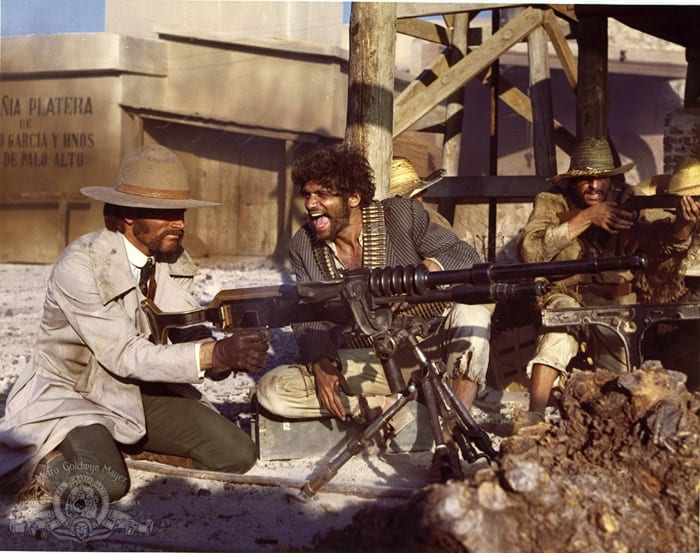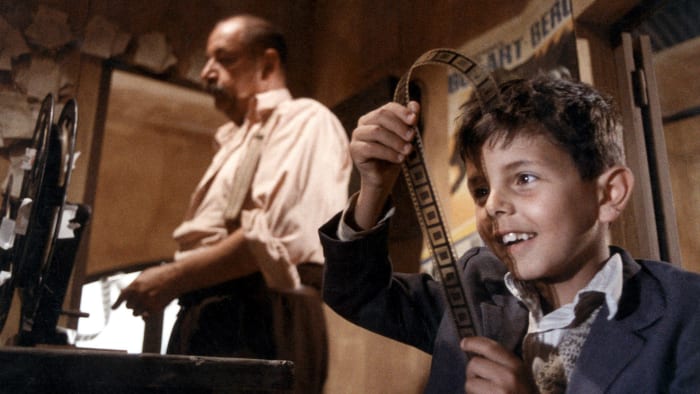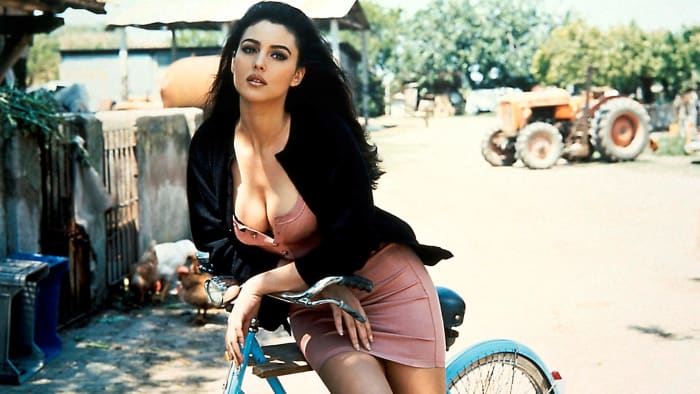- Home
- Quizzes
- My Quiz Activity
- Newsletters
- Sports Betting
- MY FAVORITES
- Add Sports/Teams
- SPORTS
-
NFL
- NFL Home
- Arizona Cardinals
- Atlanta Falcons
- Baltimore Ravens
- Buffalo Bills
- Carolina Panthers
- Chicago Bears
- Cincinnati Bengals
- Cleveland Browns
- Dallas Cowboys
- Denver Broncos
- Detroit Lions
- Green Bay Packers
- Houston Texans
- Indianapolis Colts
- Jacksonville Jaguars
- Kansas City Chiefs
- Las Vegas Raiders
- Los Angeles Chargers
- Los Angeles Rams
- Miami Dolphins
- Minnesota Vikings
- New England Patriots
- New Orleans Saints
- New York Jets
- New York Giants
- Philadelphia Eagles
- Pittsburgh Steelers
- San Francisco 49ers
- Seattle Seahawks
- Tampa Bay Buccaneers
- Tennessee Titans
- Washington Commanders
-
MLB
- MLB Home
- Arizona Diamondbacks
- Atlanta Braves
- Baltimore Orioles
- Boston Red Sox
- Chicago White Sox
- Chicago Cubs
- Cincinnati Reds
- Cleveland Guardians
- Colorado Rockies
- Detroit Tigers
- Houston Astros
- Kansas City Royals
- Los Angeles Angels
- Los Angeles Dodgers
- Miami Marlins
- Milwaukee Brewers
- Minnesota Twins
- New York Yankees
- New York Mets
- Oakland Athletics
- Philadelphia Phillies
- Pittsburgh Pirates
- San Diego Padres
- San Francisco Giants
- Seattle Mariners
- St. Louis Cardinals
- Tampa Bay Rays
- Texas Rangers
- Toronto Blue Jays
- Washington Nationals
-
NBA
- NBA Home
- Atlanta Hawks
- Boston Celtics
- Brooklyn Nets
- Charlotte Hornets
- Chicago Bulls
- Cleveland Cavaliers
- Dallas Mavericks
- Denver Nuggets
- Detroit Pistons
- Golden State Warriors
- Houston Rockets
- Indiana Pacers
- Los Angeles Clippers
- Los Angeles Lakers
- Memphis Grizzlies
- Miami Heat
- Milwaukee Bucks
- Minnesota Timberwolves
- New Orleans Pelicans
- New York Knicks
- Oklahoma City Thunder
- Orlando Magic
- Philadelphia 76ers
- Phoenix Suns
- Portland Trail Blazers
- Sacramento Kings
- San Antonio Spurs
- Toronto Raptors
- Utah Jazz
- Washington Wizards
-
NHL
- NHL Home
- Anaheim Ducks
- Arizona Coyotes
- Boston Bruins
- Buffalo Sabres
- Calgary Flames
- Carolina Hurricanes
- Chicago Blackhawks
- Colorado Avalanche
- Columbus Blue Jackets
- Dallas Stars
- Detroit Red Wings
- Edmonton Oilers
- Florida Panthers
- Los Angeles Kings
- Minnesota Wild
- Montreal Canadiens
- Nashville Predators
- New Jersey Devils
- New York Islanders
- New York Rangers
- Ottawa Senators
- Philadelphia Flyers
- Pittsburgh Penguins
- San Jose Sharks
- Seattle Kraken
- St. Louis Blues
- Tampa Bay Lightning
- Toronto Maple Leafs
- Vancouver Canucks
- Vegas Golden Knights
- Washington Capitals
- Winnipeg Jets
- NCAAF
- NCAAM
- Boxing
- Entertainment
- Lifestyle
- Golf
- MMA
- Soccer
- Tennis
- Wrestling
- More Sports
- RESOURCES
- My Account
- YB on Facebook
- YB on Twitter
- YB on Flipboard
- Contact Us
- Privacy Policy
- Terms of Service

The greatest and most influential film scores of Ennio Morricone
Since receiving his first official film scoring credit in 1961 with "The Fascist," Ennio Morricone has written the music for over 300 movies. That number itself is staggering. Now consider the breadth and towering quality of the work. He invented the sound of the spaghetti western in the 1960s, mastered the crime and giallo genres in the 1970s and then segued into a prestige phase that has resulted in six Academy Awards and two wins (one competitive and one honorary). He is arguably the greatest film composer of all time. To honor the maestro on his 90th birthday (on Nov. 10), let's court the fury of Morriconistas the world over and single out his 25 greatest and/or most significant works.
"For a Few Dollars More" (1965)

Morricone’s whistle-and-electric-guitar main theme for "A Fistful of Dollars" is obviously more influential, but that film and its score are formative works that really begin to pay off with this far more inventive sequel. The musical theme built around the villain’s pocket watch gradually reveals layers to the character and winds up being integral to the narrative. It’s scoring as storytelling.
"The Big Gundown" (1966)

This masterful score used to be one of the best kept secrets of Morricone’s prolific career, but the word got out in 2009 when two of its best cues, "La Resa" and the "Für Elise"-inflected "La Condanna," were lovingly hijacked by Quentin Tarantino for "Inglourious Basterds." There’s more compositional genius where that came from, and you should absolutely experience it for the first time while watching Sergio Sollima’s hugely underrated spaghetti western starring Lee Van Cleef and Tomas Milian. Run, man, run to Amazon!
"The Good, the Bad and the Ugly" (1966)

Morricone unleashed two of his most iconic cues, the whistle-and-wah-wah main theme and the dizzying "The Ecstasy of Gold," for the final installment of Sergio Leone’s "Dollars Trilogy." But it’s “The Story of a Soldier," which plays as poor Tuco takes a hellacious beating from Angel Eyes’ henchman, that gets us every time. It’s a surprising moment of pathos in an otherwise dark-hearted film — powerful enough to make you forget poor Tuco is a reputed murderer of women and children.
"Navajo Joe" (1966)

Savaged by critics and, in the decades to come, its star (Burt Reynolds), "Navajo Joe" is a perfectly serviceable Sergio Corbucci spaghetti western that’s best known nowadays for Morricone’s main theme, aka the music that plays off David Carradine’s title villain in Quentin Tarantino’s "Kill Bill." This is by far the most tuneful portion of the score, which incorporates chanting, yowling and all manner of sonic craziness.
"Danger: Diabolik" (1968)

Deep down. Deep, deep down, you know you love Morricone’s swinging '60s score to Mario Bava’s garish, utterly bonkers comic book movie. "Driving Decoys" plays like the "Batman" TV theme on greenies, while the lounge-luscious "Deep Down" is exactly what you want to hear when you’re bedding down with a beautiful woman on a whole mess of cash. It’s an absurdly groovy score that, much like the film it accompanies, is best taken in small doses.
"The Mercenary" (1968)

This is yet another classic Morricone score that’s probably best known for its reuse in a Quentin Tarantino film — which is a shame because Sergio Corbucci’s Zapata western is a visually stirring marvel almost on par with his masterpiece, "The Great Silence" It does, however, have the superior score, and if you’ve never seen the film you’ll identify the theme, "L’arena," as music to punch yourself out of a grave by.
"Once Upon a Time in the West" (1968)

Four distinct characters get three unforgettable themes in Morricone’s fourth western collaboration with Sergio Leone. "Jill’s America" is the mythic/melancholic main theme of the film, while "Farewell to Cheyenne" is the andante, piano-and-banjo amble that kicks up whenever Jason Robards’s out-of-luck bandit wanders into a scene. But the standout track is “Man with a Harmonica," a fierce, Fender-borne symphony of violence shared by Charles Bronson’s vengeful gunman and Henry Fonda’s unrepentant killer. In a career riddled with highs, this may be the peak.
"Burn!" (1969)

Morricone was more arranger than composer on Gillo Pontecorvo’s "Battle of Algiers," but this follow-up collaboration between the two artists is all Ennio and all amazing. The opening theme, "Abolisson," builds to an incendiary climax via a crescendo of pipe organ, bongos and choir. It’s a singular composition from a singular composer, and while the rest of the soundtrack can’t quite match its ferocity, this is forgivable because little else in the pantheon of film scoring can.
"The Bird with the Crystal Plumage" (1970)

Dario Argento’s directorial debut features Morricone’s first great giallo score. The dreamily sinister opening credits cue, with its vocalized “La, La, La” nursery rhyme melody, plays like a bizarre major key answer to Krzysztof Komeda’s classic "Rosemary’s Baby" theme. It sets a spellbinding tone for Argento’s Hitchcockian cat-and-mouse thriller (one of his very best).
"Investigation of a Citizen Above Suspicion" (1970)

The wild instrumentation of the main theme — including a mandolin, an out-of-tune piano, sharply struck strings and various percussion effects — introduced a motif Morricone would revisit several times throughout his career, particularly in crime films. (You can hear a bit of it in the opening credits to “The Untouchables.") The score adds a slightly arch dimension to the darkly satiric tone of the movie; it’s a perfect example of Morricone’s music enhancing a film’s sensibility without overwhelming it.
"Two Mules for Sister Sara" (1970)

Morricone’s lively score largely redeems this ho-hum Don Siegel western starring Clint Eastwood as an outlaw who teams with a nun (Shirley MacLaine) to help a band of Mexican rebels during the French intervention. This is some of Morricone’s most delightfully inventive work. The main theme is the highlight: a flute-led flourish of south-of-the-border sounds like snakes and bugs and a braying burro.
"Duck, You Sucker!" (1971)

Morricone cuts loose with a terrific score that effortlessly skips from operatic to jazzy, which is in keeping with the loopy tonal shifts in Leone’s tale of bandits making explosive hay during the Mexican Revolution. The sing-chanting of "Sean" is one of Morricone’s goofiest motifs, but this playfulness never undermines the film’s overall tragic arc. He was never more in sync with Leone’s sensibility, and there’s a case to be made that this is the perfect synthesis of their idiosyncratic talents.
"Maddalena" (1971)

Jerzy Kawalerowicz’s 1971 critically derided drama “Maddalena” has been out of print for decades, but its spirit lives on in Ennio Morricone’s lushly romantic score, the standout of which is "Chi Mai." Given the forgettable nature of the film, no one batted an eye when the melody turned up again in the 1981 Jean-Paul Belmondo cop flick, "The Professional" and the BBC drama "The Life and Times of David Lloyd George."
"What Have You Done to Solange?" (1972)

Matthew Dallamano’s twisty-and-twisted giallo features one of Morricone’s most haunting melodies (played first via piano and then warbled by the great Edda Dell’Orso). The score imbues the film, a nasty piece of work about a serial killer who preys on high school girls, with a palpably somber dimension that might make it a little more palatable for those who typically avoid the psychosexually problematic genre.
"Revolver" (1973)

One of Morricone’s best “poliziottesco” scores should be instantly recognizable to fans of Quentin Tarantino’s "Inglourious Basterds," which used its “Un Amico” cue for the projection booth shootout between Mélanie Laurent and Daniel Brühl. It worked there, but it’s positively gangbusters in Sergio Sollima’s ferocious crime thriller starring Oliver Reed and Fabio Testi.
"Days of Heaven" (1977)

Terrence Malick’s visually stunning masterpiece represents his only collaboration with Morricone, but the duo made it count with a score built around Saint-Saëns’ enchanting "Aquarium." The music captures both the otherworldly beauty of the Texas panhandle in the 1910s and Malick’s inscrutable sense of melancholy for a time and place forever out of reach.
"Orca" (1977)

Morricone has scored his share of stinkers over the years, none worse than this “Jaws” knockoff from producer Dino De Laurentiis. It’s essentially "Death Wish" with a killer whale, but Morricone gussies it up with music worthy of a great seafaring epic. The mournful main theme is immensely powerful despite (or perhaps because of) its peculiar instrumentation (strings, flutes and something that sounds a good deal like a steam organ), while the jarring action cues would be right at home in a slasher movie. There’s nothing else quite like it in Morricone’s diverse oeuvre.
"The Thing" (1982)

Morricone goes minimalist with this unnerving electronic score for John Carpenter’s sci-fi/horror classic. The tale of how this collaboration came to be differs slightly depending on the teller, but the gist is that Carpenter, a longtime admirer of Sergio Leone’s spaghetti westerns, was fulfilling a filmmaking dream by working with one of his scoring heroes. Though Carpenter wound up using only bits and pieces of the maestro’s work, the main theme is all his and it’s a brilliantly eerie table-setter for one of the best films of the 1980s.
"The Mission" (1986)

Some of Morricone’s most inspired and spiritual compositions adorn this flatly directed wannabe epic from Roland Joffé. Cinematographer Chris Menges is too skilled to not get off some stunning shots of the South American rainforest, and these isolated moments of grandeur clearly spoke to Morricone. The ethereal majesty of "On Earth as It Is in Heaven," the epiphanic awe of "Falls" and the aching beauty of "Brothers" — film scoring doesn’t get any better than this.
"The Untouchables" (1987)

From the propulsive opening credits cue to the triumphal, trumpet-blasting main fanfare, Morricone’s score for Brian De Palma’s feds-and-mobsters saga showcases the maestro at his most satisfyingly classical and conventional best. Morricone summons up an old-fashioned sweep that winningly complements De Palma’s crowd-pleasing instincts, but he still manages to work in some of his funkier crime-movie motifs — this time with a little orchestral oomph behind them.
"Cinema Paradiso" (1988)

Giuseppe Tornatore’s relentlessly sentimental coming-of-age drama, built around a young man’s friendship with the projectionist at his village’s movie theater, throws an all-time emotional haymaker in its final scene, and it’s hard to imagine the blow landing as flush as it does without Morricone’s magnificent love theme. This is the maestro’s most deliriously romantic score — a goose bump generator on par with John Barry’s "Somewhere in Time."
"A Time of Destiny" (1988)

Morricone pours on the symphonic grandeur with this gloriously overblown score for Gregory Nava’s positively godawful "A Time of Destiny." The film is down there with "Orca," "Sahara" and "Butterfly" as the worst to ever feature the maestro’s music. But the soundtrack is out-of-context gold — particularly the operatic main theme, which was repurposed by some unsung trailer-cutting hero for Lawrence Kasdan’s "Wyatt Earp." The "Heroes" cue is a lovely reworking of "The Funeral" from Morricone’s score for "A Pistol for Ringo."
"Casualties of War" (1989)

After the commercial and artistic triumph of "The Untouchables," Brian De Palma reunited with Morricone for this passion project about a horrific crime committed by a group of marauding U.S. soldiers during the Vietnam War. There’s nothing subtle about this score: It processes the unspeakable viciousness unfolding onscreen with all due anguish and bombast. You know Morricone means business when he busts out the pan flute (see also: "The Battle of Algiers").
"Lolita" (1997)

Morricone hooks deep into the doomed romanticism of Adrian Lyne’s adaptation of Vladimir Nabokov’s masterpiece and delivers an emotionally complex series of cues that stabilize the director’s tonal balancing act. Morricone’s music mirrors the progressive deterioration of Humbert’s mental state by gradually introducing discordant notes into the main theme. He’s never been more attuned to a filmmaker’s artistic intent.
"Malena" (2000)

Morricone’s fifth collaboration with director Giuseppe Tornatore tasks the maestro with composing a theme that expresses the ineffable beauty of Monica Bellucci. Nothing to it! Alas, there’s nothing much to Tornatore’s characteristically sappy film, but he deserves some kind of special Oscar for having the presence of mind to bring Monica and Ennio together.
Jeremy Smith is a freelance entertainment writer and the author of "George Clooney: Anatomy of an Actor". His second book, "When It Was Cool", is due out in 2021.
More must-reads:
Trending in Entertainment
Customize Your Newsletter
 +
+
Get the latest news and rumors, customized to your favorite sports and teams. Emailed daily. Always free!
Use of this website (including any and all parts and
components) constitutes your acceptance of these
Terms of Service and Privacy Policy.

